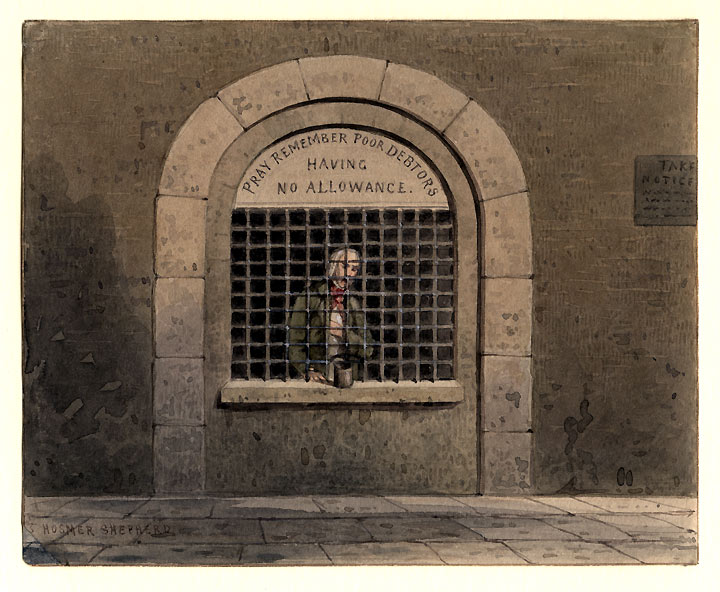Saul Estrin and David Marsden reflect on the problems of corporate governance that large companies responsible for outsourced public services face. They wrote a short report for the UK government replying to its Green Paper on Corporate Governance Reform and submitted it in November 2017.
The recent collapse of Carillion highlights the limitations of current government policy on corporate governance, and the need for greater voice from employees and other stakeholders; in this particular case, those depending on the public services that had been contracted out to Carillion. At the high point of British ‘paternalistic capitalism’ in the middle decades of the last century, company bosses often expressed the view that the search for profit had to respect the long-term interest of the business and its multiple stakeholders (Heckscher 2007). They may not always have been sincere, but the fruits of the wider responsibility could be seen in the cultivation of long-term jobs for core employees, with deferred rewards for loyalty in terms of promotion and pensions, and the expectation of reciprocation from employees. Even non-union firms often felt the need to rival what their unionized competitors offered (Foulkes 1980).

Without viewing the past through rose-tinted lenses, the post-war decades were ones in which the political climate to some extent forced big business to take account of many of the social externalities of its actions: a modern version of ‘noblesse oblige’. But the rise of ‘shareholder capitalism’ in the 1970s and 1980s heralded an erosion of the wider goals of business with much less corporate emphasis being placed on addressing the aspirations of any stakeholders other than equity holders. Indeed, it is often argued in management education that unbridled self-interest combined with strong competition generates the best results (Friedman 1970). As the intellectual climate came to emphasise shareholder sovereignty, so it came to regard workers, and their unions, as similarly driven by their own narrow self-interest. The former ‘core’ workers who benefited from stable jobs and pensions became regarded as ‘insiders’ who defend their position at the expense of ‘outsiders’, who face economic instability and poverty in old age.
Many service sector workers will say that, beyond the need for an income, what really gives their work meaning are the intrinsic elements: ‘the kids’ in the case of teachers, or helping unemployed people in benefit offices, or the sick and injured in hospitals. To satisfy the intrinsic demands of their jobs provides motivation to acquire additional skills and to perform at a high standard. Human resource professionals often emphasise the need for businesses to harness these ‘passionate’ aspects of employees’ work if they are to succeed. Yet these motivations and their external effects can be eroded by an excessive focus on a narrow definition of performance directed exclusively towards measured financial success. The narrower the criteria of success towards profits, the more likely the wider purpose of the organization is to be lost, and the broader social benefits from business neglected. Such seems to have happened at Carillion.
Especially in service organisations, the employees are ‘the eyes and ears of the business’.
Top management has a special responsibility because it controls the resources an organization can allocate across various activities, and it sets the work goals of individual employees. Especially in service organisations, employees are often those closest to the customers. They interact with them on a daily basis. Doing so, they pick up valuable cues from them about their needs and expectations: as one manager put it, they are the ‘eyes and ears of the business’. In all businesses, to neglect ‘keeping close the customer’ can mean missing opportunities, but in a public service, it can also lead to citizen alienation. Why should employees bother passing the vital information that they gain every day if they believe that top management is uninterested in their views; if addressing them is seen only as an additional cost?
In contrast to the situation in the UK, companies in Germany and Japan have well-established channels for conveying employees’ views to senior management. This has not been associated with major failures of management control or experiences of worsened business performance; quite the reverse. There has been some public debate on the issue in the UK but despite a Green Paper on Corporate Governance Reform in November 2016, progress has been limited. One way for Britain to address its damaging deficiencies in this area, suggested in the LSE Department of Management Evidence to the Green Paper (2017) would be to build on the existing legal provisions for employee consultation by strengthening them, and ensuring that employees have an input into board level decisions. There have been many periods in Britain when firms have tried out such options, but typically, they have not followed them through. Consultation became a matter of ‘tea and toilets’, with little reference to the wider goals of the organization, and how to engage employees more. When Japanese companies led their attack on poor quality in the 1970s and 1980s, they engaged their employees in ‘quality circles’, but took great care that good ideas went all the way to the top, and were widely shared not just within the organization, but also with suppliers. This required the continued attention of senior management. In Germany, works councils and employee representatives on supervisory boards play a large part in ensuring that top management is kept abreast of a wide range of employee concerns.
In all businesses, to neglect ‘keeping close the customer’ can mean missing opportunities, but in a public service, it can also lead to citizen alienation.
For this reason, we argue that beefing up employee consultation in Britain must include the means to ensure that continued attention from top management, and that this is best served by developing a system of worker directors who are responsible for making the consultation mechanisms effective. In this way, what ordinary employees learn at the front line can be developed and expanded throughout the organization. Where union organization has remained strong, it too has a key part to play in this, although this may be limited by the current weakness of private sector unions. This is why the law has a special role to play.
We argue that this is not only good for organizational performance, but also it can act as a safety restraint against top management focusing on too narrow a set of objectives, and using these as a yardstick for setting their pay; the problems that we saw only too clearly in Carillion.
References
LSE Department of Management (2017) ‘Response to DBEIS Green Paper’, Corporate Governance Reform, November 2017.
Foulkes F. (1980) ‘Personnel policies of large nonunion companies’, Prentice-Hall, Englewood Cliffs, New Jersey.
Friedman, Milton (1970) ‘The Social Responsibility of Business Is to Increase Its Profits’, The New York Times Magazine, September 13, 1970.
Heckscher, Charles (2007) ‘The collaborative enterprise: managing speed and complexity in knowledge-based businesses’, Yale University Press, New Haven.
About the authors
Saul Estrin is Professor of Management Economics and Strategy and founding Head of the Departement of Management at the London School of Economics.
David Marsden is Professor of Industrial Relations at London School of Economics and an Associate in the Labour Markets Research Programme within the Centre for Economic Performance (CEP).





